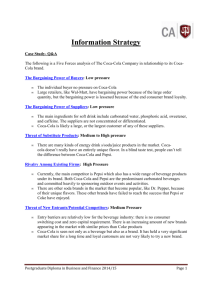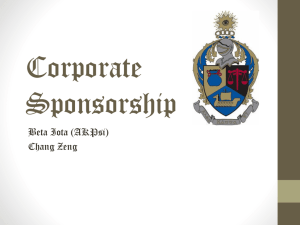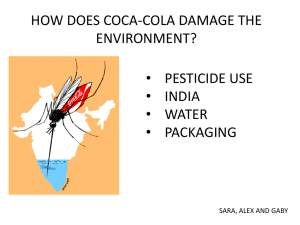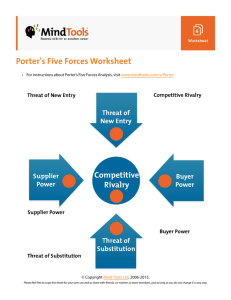PEST Analysis
advertisement
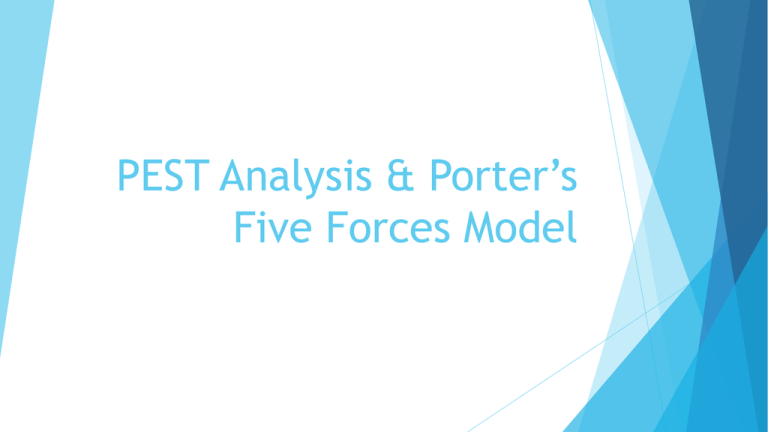
PEST Analysis & Porter’s Five Forces Model PEST ANALYSIS The general environment of an organizations consists of the external conditions that set the context for managerial decision making. Four major environmental forces: Political Economic Socio-cultural Technological Political Conditions Proposed laws, regulations and government policies all influence the ways businesses enter & operate in various markets. Political Conditions effect: Corporate tax rates Sales tax Minimum wage & labour laws Environmental waste Food & drug safety controls Economic Conditions Economic conditions influence consumer spending, resource supplies and investment capital. Economic Conditions effect: Unemployment rate & job outlook Financial markets (consumer investments in stocks) Inflation effect on consumer spending Exchange rate - supplier purchasing Exchange rate - consumer purchasing Socio-Cultural Conditions The norms, customs and social values on ethics, human rights, gender roles & lifestyle Socio-Cultural Conditions Effect: Desire for ‘green’ products Ethical production Pressure to be socially responsible Healthy-living preferences Technological Conditions Technological conditions are driving consumer buying decisions, social interactions and are giving businesses an unprecedented amount of consumer data. Technological Conditions effect: Web access decreasing worker productivity Mobile workforces Informed purchasing decisions (ie. product reviews, company profiles) Consumer buying habits Marketing strategies Consumer Behaviour research & data collection Porter’s Five Forces Model Five major forces guide managers in making strategic choices to strengthen their company within an industry. 1. Industry Competition – the way companies within the same industry compete with one another 2. New Entrants – threat of new competitors entering the market 3. Substitute Products or Services – competitors offering substitute products (often at a lower prices) 4. Bargaining Power of Suppliers – the ability of resource suppliers to influence the price that a company has to pay for their products/services 5. Bargaining Power of Customers – the ability of customers to influence the price that they will pay for the firm’s products or services. Coca-Cola & Porter’s Five Forces Model In the competitive industry, does Coca-Cola face threats from new entrants in the beverage industry? Coca-Cola & Porter’s Five Forces Model In the competitive industry, does Coca-Cola face threats from companies offering substitute products? http://www.huffingtonpost.com/thrillist/blind-tastetest-ranking_b_4255165.html Coca-Cola & Porter’s Five Forces Model In the competitive industry, do customers have bargaining power in the purchase price of Coca-Cola? The individual buyer no pressure on Coca-Cola Large retailers, like Wal-Mart, have bargaining power because of the large order quantity, but the bargaining power is lessened because of the end consumer brand loyalty. Coca-Cola & Porter’s Five Forces Model In the competitive industry, do suppliers have bargaining power? The main ingredients for soft drinks include: carbonated water phosphoric acid sweetener caffeine The suppliers are not concentrated or differentiated. Coca-Cola is likely a large, or the largest customer of any of these suppliers. Coca-Cola & Porter’s Five Forces Model Does Coca-Cola have a large rivalry with any other beverage company?

